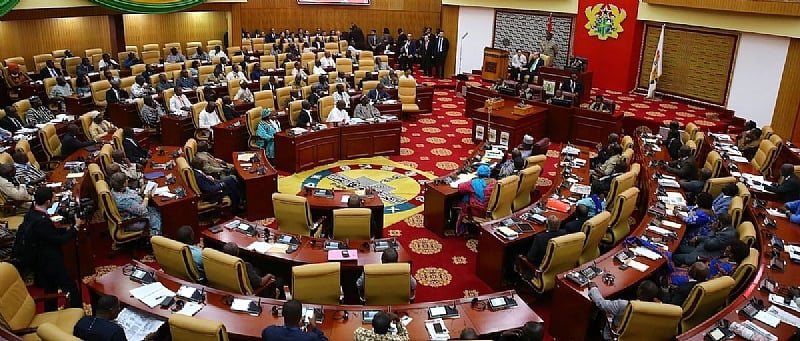The Bond of 1844 stands as a pivotal document in the intricate tapestry of Ghana’s historical and constitutional development, marking a significant turning point in the nation’s journey from pre-colonial autonomy to colonial subjugation and ultimately, independence. This document, recently presented to the Ghanaian Parliament by the British National Archives, encapsulates the complex relationship between the Fante chiefs and the burgeoning British colonial power in the mid-19th century. By formalizing British influence within the Gold Coast, the Bond set in motion a series of events that irrevocably shaped the political and social landscape of the region. Its significance as a foundational text for understanding Ghana’s colonial past and subsequent constitutional evolution cannot be overstated.
The formal presentation of an authentic copy of the Bond to the Speaker of Parliament, Alban Bagbin, underscores the document’s continuing relevance and symbolic weight. This gesture by the British National Archives, represented by Juliette Desplat, Head of International Affairs, and Keith McMahon, Charge’d Affaires of the British High Commission, signifies a recognition of the historical importance of the Bond, both for Ghana and for the broader narrative of British colonialism in Africa. Speaker Bagbin’s heartfelt expression of gratitude highlights the profound resonance of this event for the Ghanaian people, who see the Bond as an integral part of their national story. Its placement within the Parliament museum further solidifies its status as a touchstone of Ghanaian history, accessible for public education and scholarly research.
The Bond of 1844, at its core, was a treaty signed between the Fante chiefs and representatives of the British Crown. The Fante, a prominent coastal people, held sway over a significant portion of the territory that would later become southern Ghana. Facing external threats and internal pressures, certain Fante leaders sought British protection and assistance in maintaining order and security within their domain. The Bond, therefore, represented a calculated attempt to leverage British power to bolster their own standing and ensure the continuation of their existing social and political structures. For the British, the treaty presented a strategic opportunity to expand their influence within the Gold Coast, a region already highly valued for its lucrative trade routes and natural resources.
The ramifications of the Bond of 1844 were far-reaching and profound. While ostensibly designed to preserve Fante autonomy while providing British protection, the treaty inadvertently laid the groundwork for the formal establishment of the British colony in what was then known as the Gold Coast. The agreement granted the British extensive judicial authority within Fante territories, effectively undermining the traditional legal and political systems. This subtle erosion of indigenous power structures set a precedent for further British encroachment in the region, eventually culminating in the complete annexation of the Gold Coast as a British colony. The Bond, therefore, became a symbol of both cooperation and coercion, a testament to the complex negotiations and power dynamics at play during the initial stages of British colonization in West Africa.
The establishment of British colonial rule in the Gold Coast had a transformative impact on the region. The introduction of British legal and administrative systems, coupled with the expansion of trade and infrastructure, irrevocably altered the social, economic, and political landscape. While British rule brought about certain advancements in areas such as education and infrastructure development, it also resulted in the suppression of indigenous customs and traditions, the exploitation of resources, and the gradual erosion of traditional authority. The Bond of 1844, therefore, can be viewed as a pivotal moment in this transformative process, a document that inadvertently facilitated the shift from indigenous self-governance to external colonial control.
The inclusion of the Bond of 1844 within the Ghanaian Parliament museum signifies its ongoing relevance and importance as a historical artifact. It serves as a reminder of the complexities of Ghana’s colonial past, the delicate balance of power between indigenous rulers and European colonizers, and the lasting impact of these historical encounters on the nation’s present. By making the Bond accessible to the public, the Ghanaian Parliament is promoting a deeper understanding of the nation’s history and encouraging reflection on the legacies of colonialism. The document stands as a testament to the enduring power of historical narratives and the importance of preserving such artifacts for future generations. It also serves as a poignant symbol of the journey from colonial subjugation to national sovereignty, a journey that continues to shape the identity and aspirations of modern Ghana.














